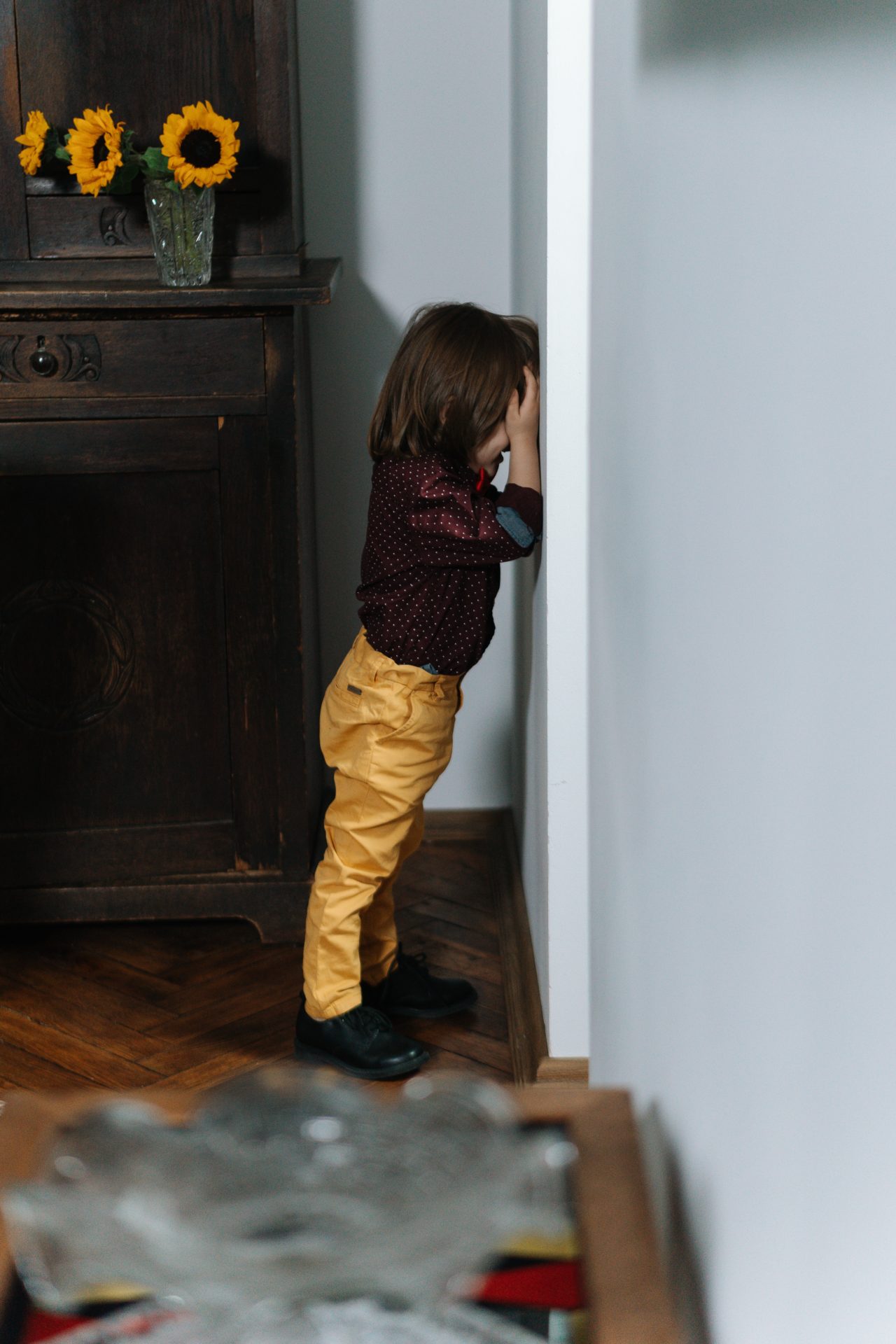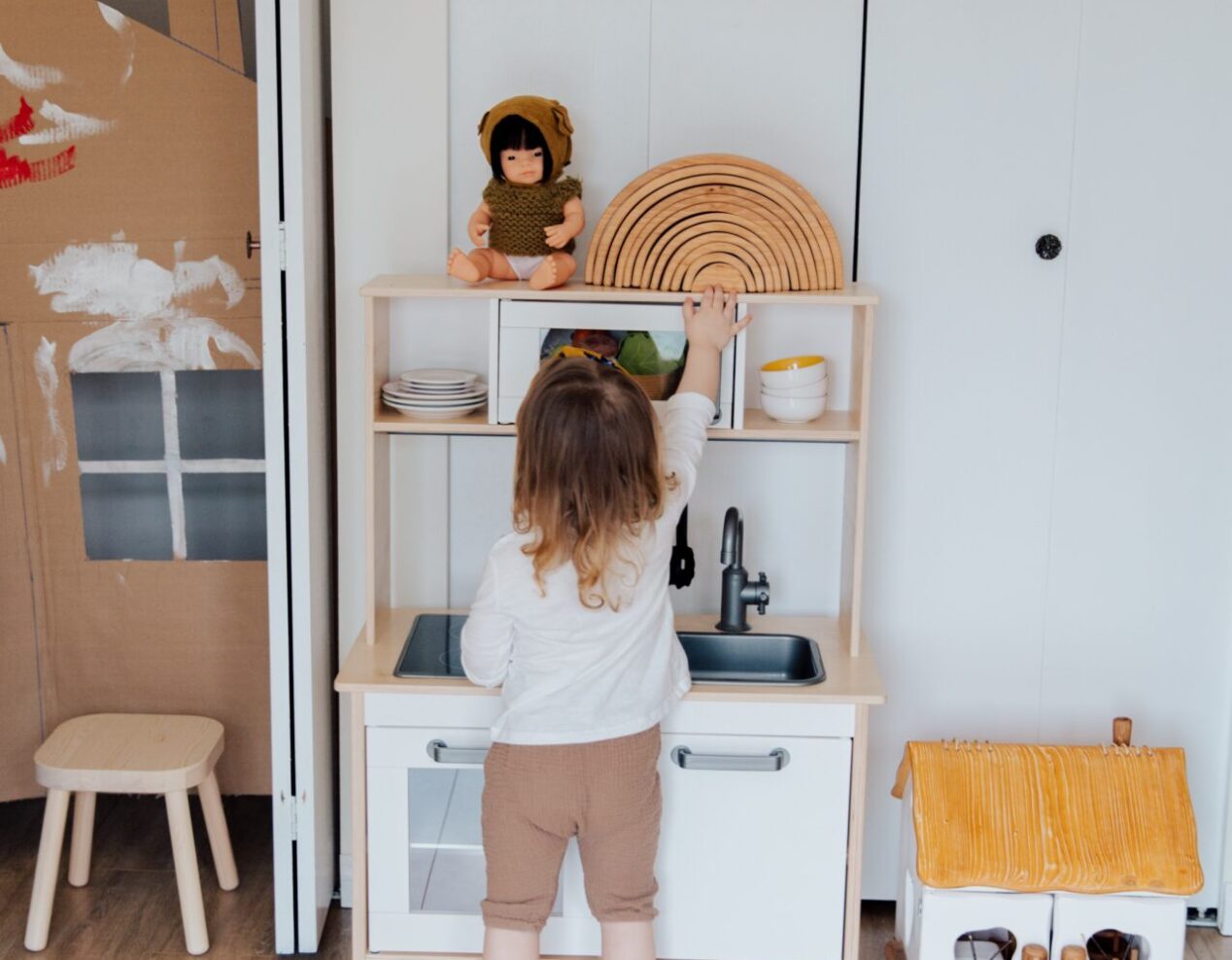Raising your Toddler with Discipline Instead of Punishment

Usually, they are cries of frustration from parents who are lost and confused about what to do or how to go about it differently…
- “Sometimes, I get so frustrated and just put my son in the other room for a time out.”
- “I hate yelling at my daughter but honestly she tries to get away with EVERYTHING. What else can I even do?!”
- “Counting to 3 and threatening to take my kids home from the park is the only way they will stop bickering and listen to me. It’s infuriating!”
These comments, thoughts, and actions are so common – and natural! They are impulse reactions and sometimes on those really bad days, it’s the only thing you can think to do. However, it is likely not the image you had of yourself as a loving parent.
AND the most difficult part is… You want to do it differently, BUT you simply don’t know how.
Don’t worry – there’s good news! ????
There are a number of ways to get your child to cooperate, without using the old-school methods of punishment like shouting and putting them in a time-out. At Howtotalk, we believe there is no place for these types of punishment in a caring relationship – however, we do also believe that a child should experience the consequences of their bad behavior.
So – What now?
Let’s quickly explore WHY our standard methods of punishment don’t work – and then we will dive into our practical tips to respectfully invite your child to cooperate without punishment.
Punishment doesn’t work for two reasons.
▶️ Punishment is a distraction from bad behavior. Instead of your child reflecting on how to do things right or differently in the future, they might start thinking of strategic ways to continue doing it or they might judge themselves harshly. Look back on your own childhood. Can you remember a time you were either yelled at or scolded for something? Did it feel something like this…
- “I remember thinking, ‘Mom is so mean. I’ll show her! I’ll just do it again and make sure she doesn’t find out. Ha!’”
- “I hated my Dad and thought he was such a jerk sometimes. But whenever I thought this, I would start feeling guilty because he’s my dad.”
- “Sometimes I thought, oh wow! I am such a bad person. I guess I deserve this punishment.”
These reactions and responses to punishment are obviously quite advanced, and a toddler won’t have the emotional depth to think things through like this. However, it is proven that over time certain types of punishment can have a lasting effect on a child.
▶️ Punishment is fear-based. It works in the moment but isn’t a lasting solution to a problem. For example, your child might stop throwing blueberries on the floor in the moment, however, 10 minutes later they’re at it again! (We know – this phase STINKS!!)
The Howtotalk method removes this fear-based punishment from getting your child to cooperate and instead focuses on discipline – which actually means to teach, rather than to punish. Ideally, you teach your child how to behave and continue doing the wanted behavior (i.e. not throwing blueberries) – rather than punishing your child for doing the unwanted behavior (i.e. throwing those little stain-makers!)
“Time-out” VS “Time-with”
Experiencing consequences is a natural result of a child’s behavior. Let’s look at the popular “time-out” method as an example.
The “time-out” method is where a child is set aside for a while so they can calm down and relax away from a certain situation. However, this solution actually ignores the underlying problem. Your misbehaving child doesn’t need to be sent away but rather stopped and corrected.
What your child actually needs is “time-with” a caring adult. A parent who helps them process their feelings and emotions while helping them find a better way to deal with them. Your child will no longer feel like the bad person who is sent away, but like a responsible person who can deal with their own emotions in various ways.
So, instead of a “time-out”
“Sebastian, don’t hit your sister! No, that’s it! I told you to stop. You’re going to sit over here until you calm down.”
Try “time-with”
“It’s not easy when you’re sister keeps pulling on you. Today it made you so mad that you hit her. I will not allow my children to hit each other. We’re going to make a list of things you can do if she bothers you while you draw.”
Step-by-Step Alternatives to Punishment
The following is a step-by-step guide for alternatives to punishment. Especially in situations where we are unsure what to do, this approach is exceptionally helpful and immediately applicable.
We will use the example of Jasper, an energetic child, who misbehaves at the grocery store.
- Express your disapproval, without attacking your child’s character. This sounds like, “I don’t like this. When children run down the aisles in the supermarket, it disturbs the other shoppers.
- State your expectations. “I expect you to walk calmly and stay with the cart.”
- Explain how your child can/should improve. “Running is for outside and walking is for inside. Can you walk over and pick out three lemons for us?”
- Give a choice. “Jasper, please stop running. Would you like to walk next to me or sit in the cart? Your choice.”
If the child continues…
Take action. [Put Jasper in the cart quietly.] “You chose to sit in the cart.”
Let your child experience the consequences of their behavior. Suppose Jasper continues to misbehave and you’re forced to leave the store. The next day, without preaching or moralizing, let Jasper experience the consequences. For example:
“Mom, where are you going?”
“To the grocery store.”
“Can I come with you?”
“Today, you will stay with Daddy.”
“Why?”
“Why do you think?”
“Because I ran around the store yesterday.”
“Good guess.”
“I won’t do it again, I promise! Please, please, please can I come?!”
“There will be plenty of times to come in the future. I’ll go by myself today.”
When you share, the Howtotalk community grows
We’d love to hear from you!
Did you try our step-by-step approach or do have any disciplining-specific questions? Head over to the Howtotalk app and click on the Q&A feature to check out questions and comments that, other parents like yourself, have on this topic – and many more!
We know this work is difficult and children can really test your limits, patience, and emotional capacity. You’ve got this.
Happy parenting!



